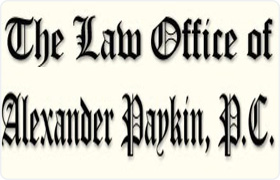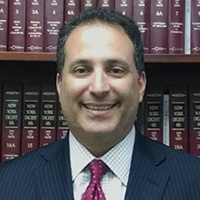Uniondale Timeshare Lawyer, New York
Sponsored Law Firm
-
 x
x

Click For More Info:
-
The Law Office of Alexander Paykin, P.C.
350 5Th Ave Fl 59 New York, NY 10118» view mapReal Estate Reliable. Dependable. Accessible.
Whether you are buying, selling, renting, or refinancing your house, our experienced legal team will strongly advocate for you at each and every step of the process.
800-747-9261
Not enough matches for Uniondale Timeshare lawyer.
Below are all Uniondale Real Estate lawyers.
Robert P. Rovegno
✓ VERIFIEDGet the compensation you deserve for your personal injury case. Our attorneys have over 45 years of legal and trial experience to help you get the rec... (more)
Anthony A. Nozzolillo, Esq.
✓ VERIFIEDAnthony A. Nozzolillo, Esq. is seasoned attorney representing individual and corporate buyers, sellers, and lenders in both routine and complex reside... (more)
Christopher Michael Lynch
✓ VERIFIEDChristopher M. Lynch has been a practicing attorney since January of 2011. In that time he has zealously advocated for his clients and has guided them... (more)
Richard S. Feinsilver
✓ VERIFIEDOver the past 25 years, lawyer Richard Feinsilver has represented in excess of 6,000 clients in the prosecution of consumer and business bankruptcy pr... (more)
Howard Adam Chetkof
✓ VERIFIEDHoward Chetkof is partner at Levin & Chetkof, LLP. He is a seasoned attorney and a highly skilled negotiator concentrating his practice in personal i... (more)
Laurie Bakhchi
✓ VERIFIEDLaurie Bakhchi is a real estate lawyer proudly serving Garden City, NY and the neighboring communities. Ms. Backhchi receiver her J.D. from the Hofstr... (more)
Elliot Scott Schlissel
✓ VERIFIEDThe Law Offices of Schlissel DeCorpo is composed of attorneys and paralegals who are caring, dedicated professionals contributing experience and exper... (more)
FREE CONSULTATION
CONTACTFREE CONSULTATION
CONTACT Alexander Paykin New York, NY
Alexander Paykin New York, NY AboutThe Law Office of Alexander Paykin, P.C.
AboutThe Law Office of Alexander Paykin, P.C. Practice AreasSpecializations
Practice AreasSpecializations







